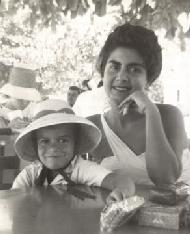Alex Sanchez is an award-winning author who was born in April 1957, in Mexico City, Mexico, to parents of German and Cuban heritage. He moved to the United States with his family when he was five. According to his website bio, his first experience with prejudice began when he started school in America and didn’t speak English. He was ashamed of his heritage and sought to hide it by refusing to speak Spanish. He would later experience prejudice again after realizing he was gay, and similarly hid his sexuality throughout high school.

He credits his mom as one of his biggest influences because she encouraged him to “access his creativity.” He wrote his first children’s book in college but didn’t pursue writing as a career until later in life. After graduating with a BA in Liberal Arts from Virginia Tech University, Sanchez got his Master’s in Guidance and Counseling from Old Dominion University and went on to work for ten years as a counselor of youth and families both in the United States and overseas.
Rainbow Boys was Sanchez’s first published book. He struggled with his experiences as a gay teen—something that motivates him to write today. On his website, he states that when he started working on Rainbow Boys he realized “he was writing the book he’d wanted and needed to read when he was a teenager—a book that would have told him: ‘It’s okay to be who you are.'”
In 2010, Alex Sanchez recorded an “It Gets Better” video to continue his support of the LGBT community.
Since Rainbow Boys, Sanchez has written numerous Young Adult novels and short stories dealing with gay teens and sexuality. He currently resides in Florida and be contacted through his website.
Liz Verrastro: As an author, what are your thoughts on issue of challenging books as it relates to your profession? To your personal views?
Alex Sanchez: Every library and school has their own policy for challenging books. If a parent or community member wishes to prevent their own child from reading a book, that’s up to them. But in a free society, no single individual has the right to prevent others from reading books they wish to read.
LV: So far we found three challenges to your book in the US and a cancelled speaking event in Canada, did you expect this sort of response?
AS: In the early 2000’s, when my first books were published, gay issues were still very controversial – much more so than now. So, I did expect some backlash. I’m thrilled by how much more acceptance there is now for LGBT issues, particularly relating to young people.
LV: Do you still hear about challenges to Rainbow Boys and its sequels Rainbow High and Rainbow Road over a decade and a half later?
AS: I don’t always hear about challenges to my books. I haven’t heard of any in the last few years. But I think it’s important to note that many more books are censored by virtue of some librarians not purchasing them in order to avoid controversy, than are actually challenged.
LV: Often times when books with gay themes are challenged the challengers claim they are challenged for “sexual themes” and not for having gay content. What do you think about this?
AS: Some people confuse sex and sexuality. Although they’re not the same thing, teenagers often struggle with both. Some books with LGBT themes do address sexual themes, but others don’t.
LV: What are your thoughts on representation of LGBT characters or other underrepresented groups in YA books? Have things changed since Rainbow Boys came out in 2001?
AS: Many more books for teens are presenting LGBT characters and other underrepresented groups than when Rainbow Boys first came out in 2001. But we still need more!
Citations
“Alex Sanchez & Rainbow Boys, The God Box, Rainbow High, Rainbow Road, Getting It, Gay Teen Books, Gay Young Adult Novels, Banned Books, Gay Teens, Gay Teen Boys, Gay Christian Teens.” WhoIsAlex, alexsanchez.com/default.asp.